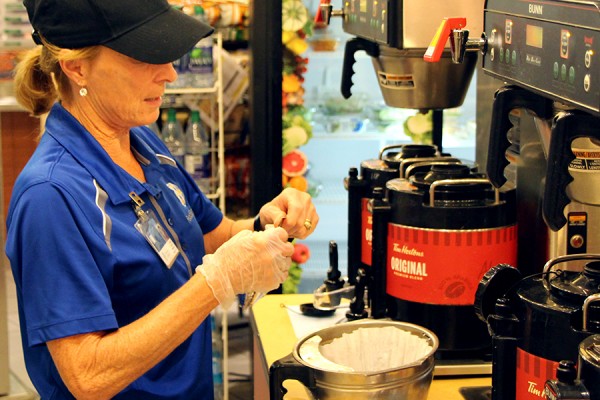 Dr. Kenneth Drouillard, professor at the University of Windsor's Great Lakes Institute for Environmental Research, explains why the emergence of mayflies can be an indication of lake health.
Dr. Kenneth Drouillard, professor at the University of Windsor's Great Lakes Institute for Environmental Research, explains why the emergence of mayflies can be an indication of lake health.
Most years, they rise from the water and blanket unsuspecting communities.
Children scream as their friends run in pursuit with one of these winged-insects pinched tight between their fingers.
But what are they exactly and should we be encouraged when some years produce seemingly record levels and others don’t?
Are they fishflies, June bugs, or mayflies?
Kenneth Drouillard, professor at the University of Windsor’s Great Lakes Institute for Environmental Research, has been studying the Hexagenia limbata for more than 20 years and helps to sweep away the misinformation about the annual invasion.
“The small-winged ephemeral mayflies that usually come out around June or July live for about two years around here,” explained Dr. Drouillard.
“They basically live in the sediment below the water for two summers and then shoot out of the water like little bullets and fly to the nearest landmass.”
Drouillard said people often think mayflies have short lifespans because the adults emerge with no mouthparts and die after they are unable to ingest food.
“Basically, they’re just here to reproduce.”
The Latin name for the insect that blankets Essex County’s waterfront communities is Hexagenia limbata; it is a species of mayfly in the family Ephemeridae.
Drouillard said they are found all across North America. If you're searching for refuge, the only states without mayflies are Alaska and Arizona.
The mayfly, sometimes referred to as fishflies because of their odour, are very sensitive to oxygen levels in water and Drouillard said they are great indicators of lake health.
“Mayflies are kind of like the canary in the coal mine for the aquatic ecosystem,” he said.
“If you find mayflies present then it means that there’s sufficient oxygen and food resources to support our fisheries.
“So, they really are a good news story for the Great Lakes.”
— Dylan Kristy


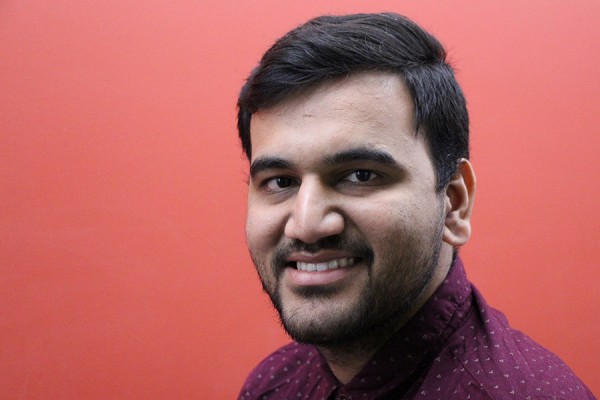

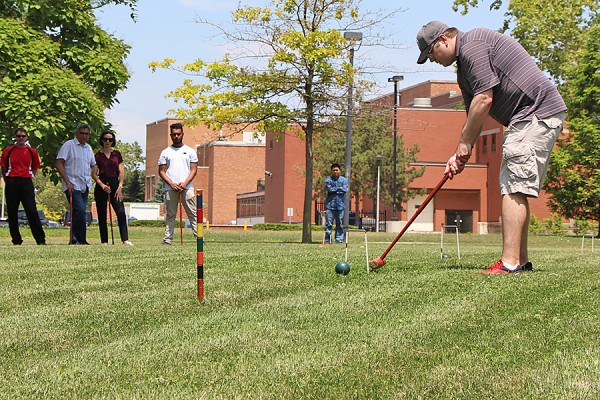
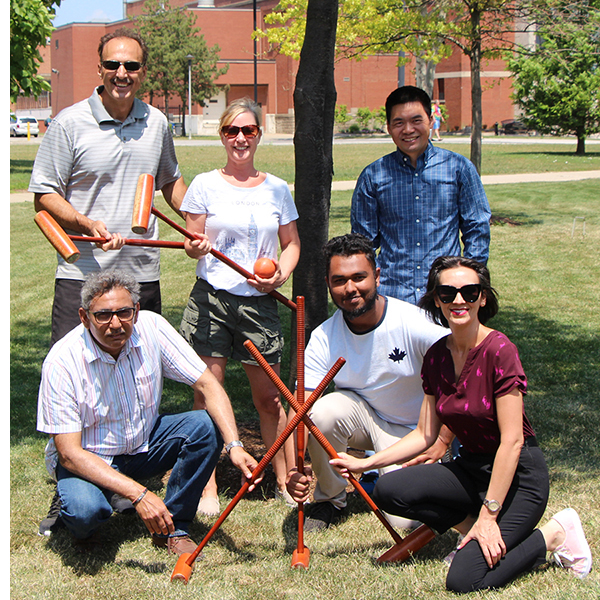
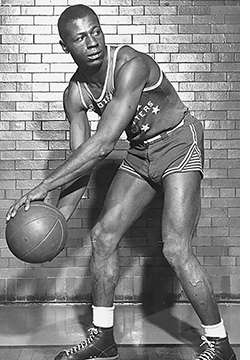 Assumption College grad Fred Thomas (BA 1949) was a groundbreaking athlete who dominated any sport he played. He played baseball in the Cleveland Indians farm system and football with the Toronto Argonauts, and in 1945 led a contingent of local basketball players in a victory over the Harlem Globetrotters.
Assumption College grad Fred Thomas (BA 1949) was a groundbreaking athlete who dominated any sport he played. He played baseball in the Cleveland Indians farm system and football with the Toronto Argonauts, and in 1945 led a contingent of local basketball players in a victory over the Harlem Globetrotters.